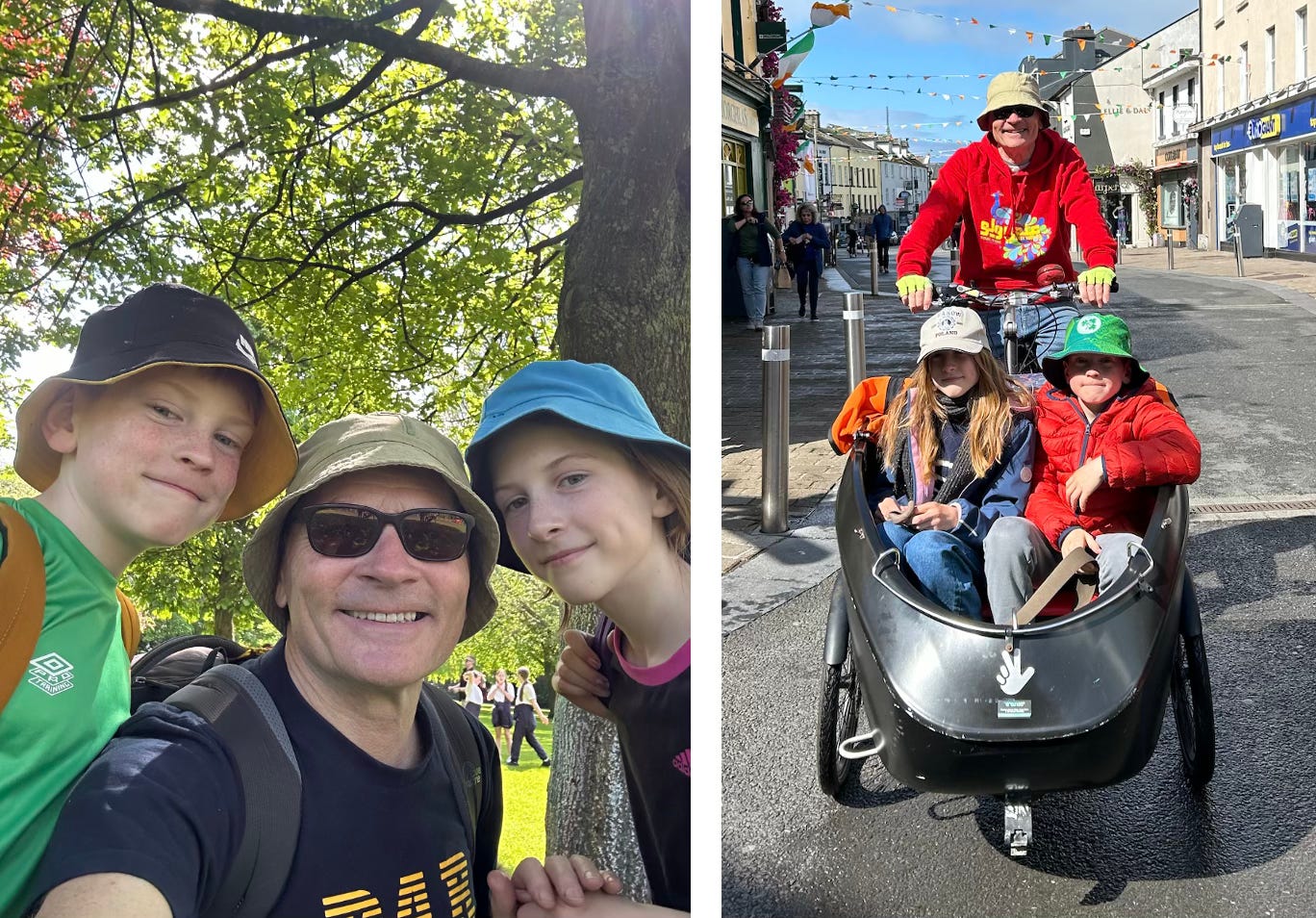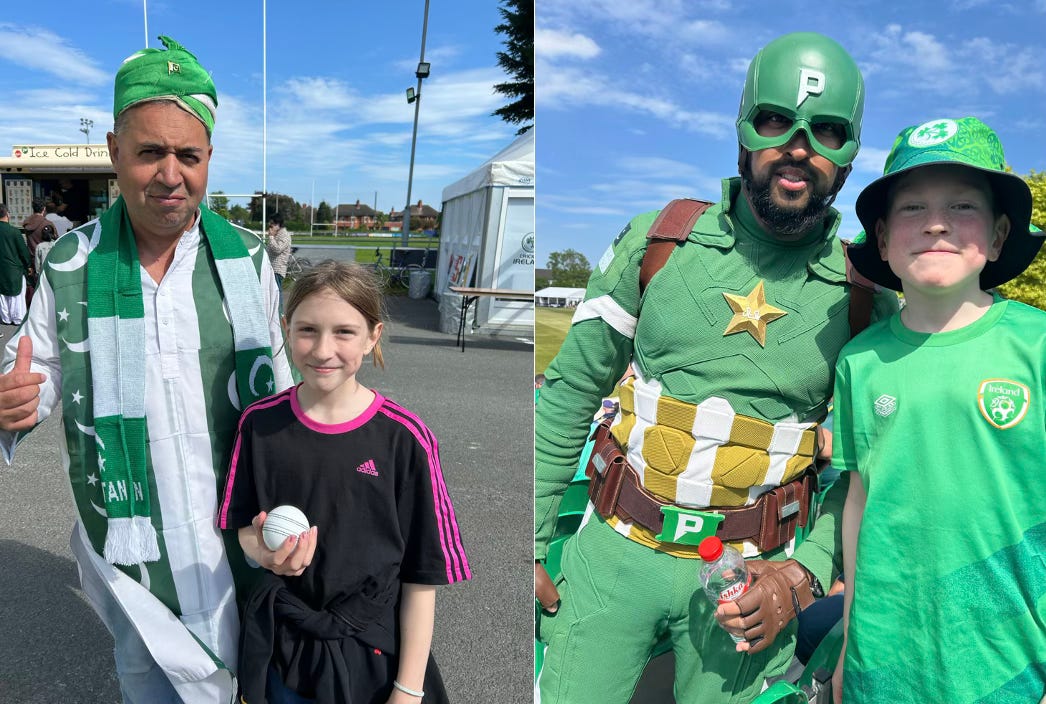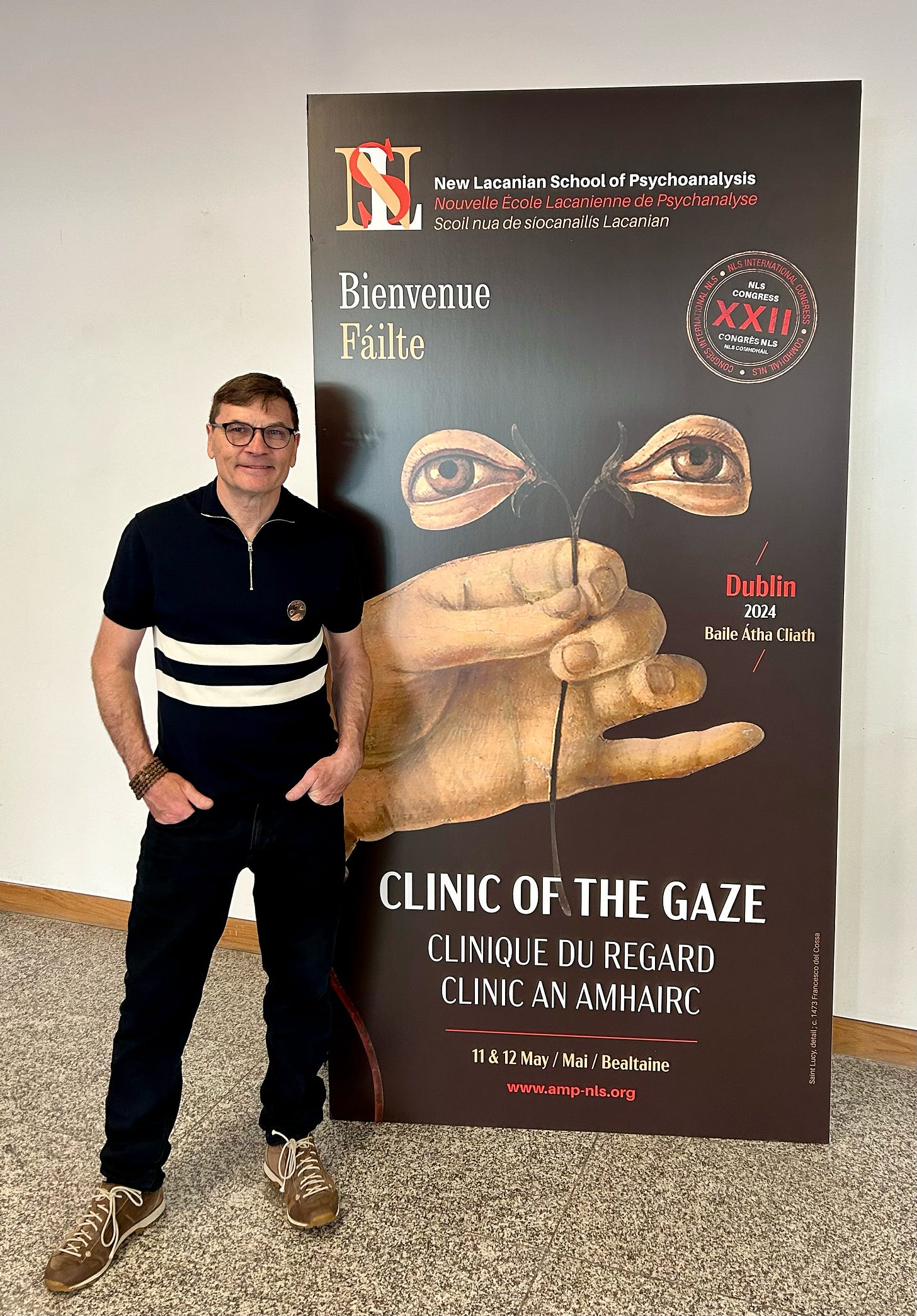This short essay shares moments from a bricolage week, one with multi-dimensional engagements and experiences. It will be published in two parts, Part 1 below is titled A Peculiar People. The writing is interspersed with composting reflections. My writing helps me compost my experience i.e. sense-making and to witness fragments of thoughts and emotions come together to produce fertile new ideas. Composting is a way of reflecting with the mind and body to produce nutrients that feed the soul.
Part 1.
The week began last Friday as I travelled from Galway to Dublin with my two children by train, my favourite means of transport after cycling and walking. We were in Dublin to test an e-cargo bike, meet my wife Agata at her workplace, and watch a cricket match. After having fun zooming around in an e-cargo bike – the children preferred our old Simon-powered one at home, I asked them what they wanted to do in the big city; perhaps museums, art galleries, shopping…? They chose a playground in a nice park they remembered from their last visit. They are 9 and 10 years old and I love how their passion for play still wins out… some learning for us adults there!
We visited Agata’s new workplace; seeing a parents workplace is important for children as they can picture in their mind where their parents spend their time at this strange place called work. This made me reflect on my lack of a workplace, except my garden office, and how my children find it hard to imagine what I actually do at this thing called work.
The Ireland versus Pakistan international cricket match was a blast, it was sunny and perfect cricket weather. The Pakistani supporters bringing flags, costumes and chanting (including political chants to free Imran Khan) which brought a carnival atmosphere making it a special occasion. It was my family’s first cricket match, so I was pleased they enjoyed it, and as a bonus as we cheered as Ireland won an unexpected victory in the last over, creating an exciting end and great day out.
The next morning I said goodbye to my family and set off early to an international 2-day psychoanalytic conference in Dublin, before heading to the UK for work.
Composting 1.
Saying goodbye is never easy. Lily especially feels the emotions a transition brings. There were tears and she had to see me off at the hotel door personally. In Group Relations work, we explore how a person can hold and express emotions on behalf of the whole group. I think Lily’s tears were both her personal way of managing transitions and she was also expressing feelings for the whole family. Goodbye’s are never easy, even when it’s a short trip. Lily is very self-aware and she shared how she knows her emotions will change soon, and later that morning a cheerful Lily and Albert were feeding fish to seals in Dublin Bay.
Multicultural living has always been such a rich joy in my life, why people fear it or prefer homogenous mono-cultures is beyond me. Rainforests and ecosystems thrive only with rich biodiversity, mono-cultures kill the soil. Humans and society also thrive only when diversity is rich, as mono-cultures kill the spirit.
The Psychoanalytic Experience
It has been a few years since I have been to any conference (time doesn’t allow for it) but this one was local to me. Psychoanalysis is important to me for three reasons. Firstly, to lie on the couch and do the work on myself that is necessary for me to process life, to stay with the trouble, and to help me live a good-life and help create the good society; those of you familiar with my work and Edgy Ideas podcasts, these themes hold my work together. Secondly, psychoanalysis is vital to my coaching, consultancy, and leadership work, as well as my writing. Working with an alive psychoanalytic sensibility brings a different dimension and depth to the work. Thirdly, psychoanalysis helps me look awry, to see the life and the social space through a different gaze.
The conference was Lacanian; Jacque Lacan was a brilliant and controversial figure in the psychoanalytic world, and his work is used in academia as well as in clinical practice. This conference was attended by 630 psychoanalysts, discussing the Clinic of the Gaze. A few things stood out for me:
Lacanian’s focus a lot on the unconscious being in the body, rather than it being something buried in the depths of the mind. This conference referenced the body a lot, and yet the whole 2 days was an experience of sitting and listening passively to speakers on a platform. Whilst the content was rich, my body was demanding movement in order to allow me to think! Another good example of theory and practice not aligning.
Lacan believed that psychoanalytic knowledge wasn’t like university knowledge, that psychoanalysis can’t be taught in the discourse of the University, but can only be learnt through transmission. When reading Lacan, I, like many others, get lost in its obscurity. I learn about his work through being present in psychoanalysis as an analysand (client), and through attending talks with others. Being present, something always sticks, something moves me and I realize I am learning through a conscious-unconscious transmission.
The Gaze is an interesting concept, where we try and understand that how we think depends on our relationship to how we look, and how others look at us. The male gaze, the female gaze, our unconscious performance for the gaze of the big Other in our lives were all discussed. We shape our identities in relation to the gaze of the other.
The Quaker Visit
Getting a sore bum through sitting still too long, I wrestled with leaving the conference for an hour or so. My analyst was sitting in the room near me and I internalised her gaze (she wasn’t actually looking at me) and felt the voice of my super-ego telling me that I should be still and attentive, and not leaving and wandering as is my way. I overcame the gaze of the other and followed my inner-leadings and a long held desire to attend a Dublin Quaker Meeting. I am a Quaker (Religious Society of Friends) but in recent years haven’t attending meetings as there isn’t one locally. Quaker meetings are a silent space where ‘friends’ sit and wait for the spirit to move somebody in the meeting to minister, i.e they are led to speak from the spirit.
About 12 people attended, and it was lovely to be bathed in a Quaker silence and I realised how much I have missed it. Two people ministered in the first half hour. My mind wandered and I picked up a Quaker book and read about the early Quakers – they began in the 1650s, and I was reminded how they were called ‘A Peculiar People’, as they were radical non-conformists who strived for a spiritual revolution. I felt my body quaked a little in the meeting as I felt called to minister (hence the name Quakers). After waiting 10 minutes, and discerning my call to speak, I trusted my leadings and found myself on my feet offering a ministry. I spoke of reading and being reminded of the Quakers being a peculiar people, and how I had just come from a conference where another group of ‘peculiar people’ had gathered, for the Lacanian psychoanalysts were surely in this category. I wondered how I was drawn to be with peculiar people, and also recognised how important it was that in our conformist society that often acts without much thought, non-conformist individuals and groups who can offer dissenting views are very important and should be held in the light.
As the meeting closed, a young woman on the bench turned and asked to speak to me. She asked me about psychoanalysis and revealed to me that she was on leave from a local mental hospital, having to return after lunch. She was an American and studying in Dublin and had just had a psychotic breakdown. We talked for a while, I asked her if she had support, and she told me her father arrived from the US tomorrow. I left her with my contacts in case she needed further help. I felt very sad remembering the young adults suffering from psychotic episodes when I worked in an asylum as a psychiatric nurse. I continue to feel a loitering sense of sensitivity and sadness for them and for this new young person whose life will change forever.
Composting 2.
The Quakers have a belief that we are ‘being led by the spirit’, and it is our task to discern that leading. I was led to this Quaker meeting against another pull to be still, but I stayed with the trouble, and let the dilemma work itself out and my discernment led me to follow the spirit and minister. The Quakers do not have a hierarchy or special clergy, we are a priesthood of all believers, as shared below from the Quaker literature:
The priesthood of all believers is a foundation of our understanding of the church. Our own experience leads us to affirm that the church can be so ordered that the guidance of the Holy Spirit can be known and followed without the need for a separated clergy.
I was led to minister, but questioned myself, not sure if my ministry was worthy of being shared. Then I reminded myself that maybe my ministry could be important for someone else, and that my leading to speak wasn’t about Simon’s ministry, but a calling to minister for the whole meeting. This reading of experience shifts from the dominant individualised way of thinking that is endemic in the west, to a more collective sensitivity we have largely lost.
The psychoanalytic conference had many clinical cases of psychosis, and I realised I was led away from the conference to support a young woman suffering from psychosis. Lesson to self: listen, discern, and then follow where the spirit leads!
My next post will follow this one as I journey to the UK.
Exercise
Think about a time when an individual expressed emotions or acted out on behalf of a group? So often we use others to express our emotions, because they are too painful or challenging for us to hold. As a family therapist we worked very often with children who would express anger, love, sadness and fear on behalf of the whole family.
Reading group behaviour through individuals acting out is a highly developed but very important skill for a leader or consultant/coach to have.








